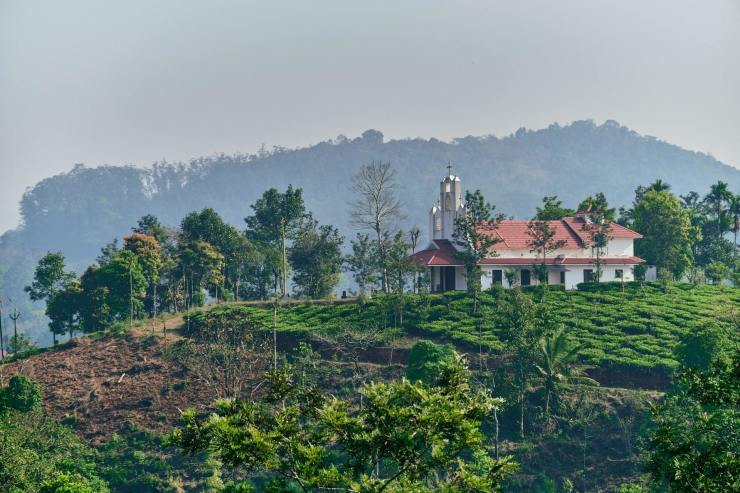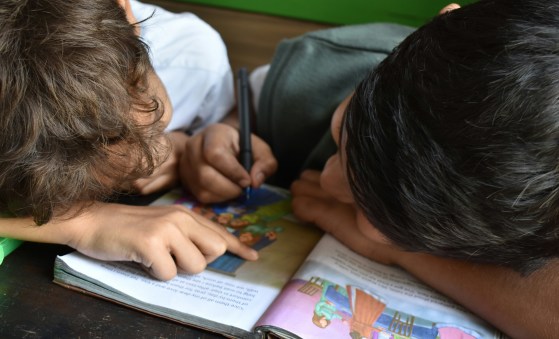
It is election season in India and political parties are making an aggressive push to court the influential Christian minority vote in states where it matters.
One of the most direct overtures has come from Prime Minister Narendra Modi and his Bharatiya Janata Party (BJP). In a recent interview with Asianet News, Prime Minister Modi made significant remarks regarding the trust of the Christian community in the BJP, particularly in Kerala. He asserted "The trust of the Christian community in us has grown stronger and we will continue to do everything possible for their welfare."
The Prime Minister pointed to the BJP's support among Christians in states like Goa and the northeast as evidence of his party's outreach across the community. "Several chief ministers and ministers are Christians," Modi said, adding that he frequently meets with Christian leaders and even organises Christmas festivities.
However, some of the policies from the Modi government like the Citizenship Amendment Act have raised concerns among minorities about the BJP's commitment to secularism. The Kerala Region Latin Catholic Council (KRLCC) had said in a statement "It is a matter of grave concern that constant attacks on India's secular fabric...were weakening democracy."
While appealing for Christian support, Modi was sharply critical of the two other major political fronts in Kerala - the Congress-led United Democratic Front (UDF) and Communist Party of India (Marxist)-led Left Democratic Front (LDF). He accused them of failing and deceiving the Christian community.
"Christian community has become fed-up with the lies of the LDF and the UDF," Modi said. "Both parties are the two sides of the same coin," he added.
While the PM expressed confidence in the BJP's prospects in the upcoming Lok Sabha polls, the National Council of Dalit Christians (NCDC) took a different stance. The NCDC, comprising various Dalit Christian organisations, announced their support for the UDF and INDIA bloc in Kerala, campaigning actively for UDF candidates across 16 constituencies.
The NCDC opposes the Modi government's National Democratic Alliance, as it did not back the council's plea in the Supreme Court seeking Scheduled Caste status for Dalit Christians. Rising attacks on the community under BJP rule are another factor, as per V J George, President of the NCDC.
The NCDC also registered its dissatisfaction with the LDF. "The LDF did not deliver the five promises to Dalit Christians in its 2016 manifesto." George said. This is why the council which had supported the LDF in 2016 has now thrown its weight behind the UDF and opposition INDIA bloc.
According to George, the Pinarayi Vijayan government excluded Dalit Christian students in aided institutions from stipend and lumpsum grant schemes that had been available since the 1960s. Despite two protests and petitions across districts, "the government was adamant on its stand," he said.
George claimed this reversal came after a report by an academic estimated Kerala had only around 159,000 Dalit Christians, which former CPM acting state secretary A Vijayaraghavan cited to rebuff the council's demands. George called this a "blunder", saying the CSI Madhya Kerala Diocese alone had over 100,000 members.
"The state has over 30 lakh (3 million) Dalit Christians. So, we demanded the government increase the reservation for government jobs from 1% to 4%. We also demanded a 10% reservation in educational institutions starting from Plus-One level. But the government did not pay heed," George told The New Indian Express.
Meanwhile, the Latin Church itself has sent conflicting signals about its political leanings. While the Syro-Malabar Church appeared favourable to the BJP, the Thiruvananthapuram Archdiocese warned of "growing intolerance" in the country.
More recently, the Verapoly Archdiocese's mouthpiece 'Jeevadeepthi' carried an article by Fr Xavier Kudiasseril praising Modi for development and probity. "We just cannot remain blind to the global acceptance of the Prime Minister...There is no corruption to speak of either," he wrote.
Kudiasseril went so far as to say "There is no need to consider the BJP untouchable anymore", hoping more Christian support could moderate the party's Hindutva agenda. He was severely critical of the CPM, calling it "a shelter for criminals" that "serves only its cadre."
However, the Verapoly Archdiocese swiftly distanced itself, saying the article reflected an individual priest's view, not the official stance.
A statement from the KRLCC, the top body of Latin Catholics in Kerala soon after appeared to contradict Kudiasseril's endorsement, decrying the "rampant misuse of constitutional bodies for political purposes" and stating "It is unjust to differentiate people on the basis of religion" - an apparent reference to the Citizenship Amendment Act.
It also flagged "relentless attacks" on Christians, their places of worship and institutions in northeastern states like Manipur, lambasting the "spine-chilling" silence of rulers obligated to uphold human rights.
While critical of the BJP, the KRLCC did not spare the Left either, rapping the LDF government for inadequately addressing the "existential crisis" facing Kerala's coastal regions through alienating development activities.
To demonstrate its neutrality, the statement even reproached the Congress, though more mildly, noting "The problems of the coast has not found a place in the Congress manifesto."
With competing parties making overtures and Christian leaders sending mixed messages, the community finds itself squarely in the political crosshairs. The KRLCC urged that the community must "adopt a political stand that adheres to secularism, social justice and democratic values" even as major contenders have arguably fallen short on these ideals.




